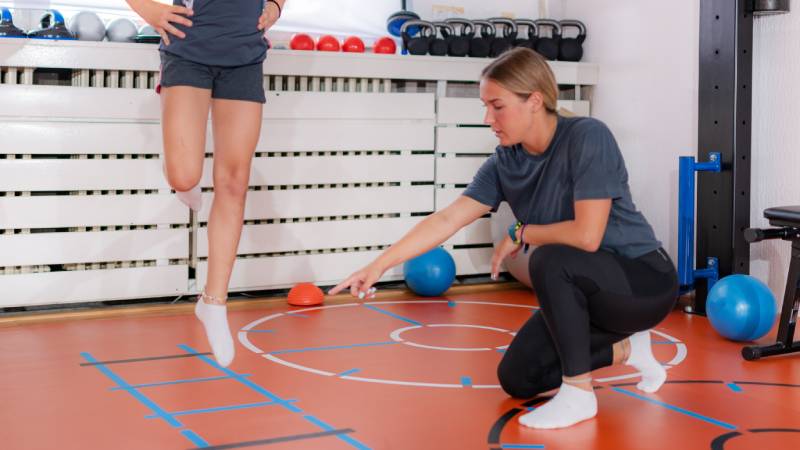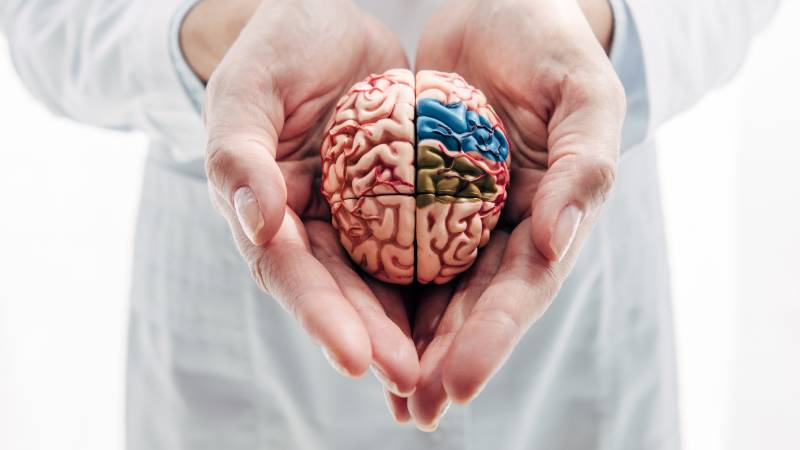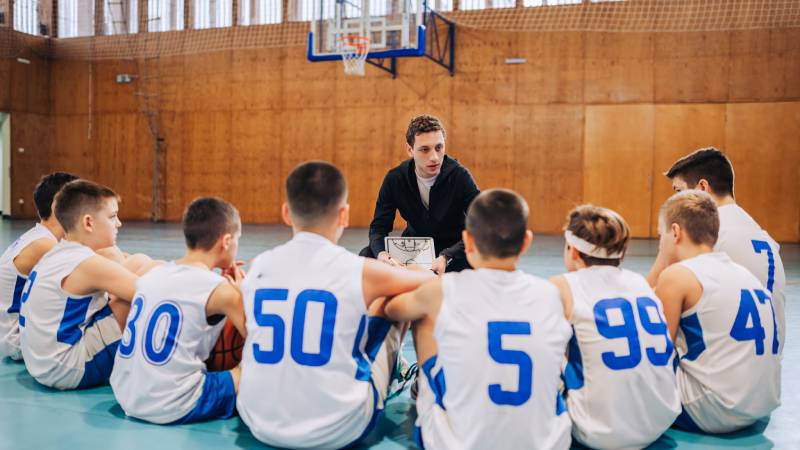Concussion: The Importance of Education and Research

Concussions, often underestimated and poorly understood, are a major health concern. These traumatic brain injuries, which can occur in a variety of situations, including sports or accidents, require special attention to prevent long-term consequences.
Education and research play a crucial role in the prevention, recognition and effective management of concussions. Indeed, 80-90% of cases usually resolve within two to three weeks. Effective concussion management can therefore have a positive influence on recovery [1].
Preventing Concussion through Education
Raising awareness and educating all those involved in sport, including athletes, coaches, parents and medical staff, is essential to preventing concussions [1].
Educating athletes from an early age:
- Integrate concussion education modules into sports programs from elementary school onwards.
- Use simple, age-appropriate language, with an emphasis on concrete examples and attractive visuals.
- Use games, quizzes and interactive activities to make learning fun and engaging.
- Encourage athletes to openly report any suspicious symptoms, creating an environment of trust and support.
Train coaches to better recognize and manage concussions:
- Make comprehensive concussion training mandatory for all coaches, delivered by medical professionals.
- Include in this training modules on recognizing the immediate and short-term signs and symptoms of concussion.
- Train coaches in game withdrawal protocols and procedures for evaluation by a health professional.
- Emphasize concussion prevention techniques and the promotion of safe and responsible play.
- Organize continuing education updates and workshops for coaches to keep them abreast of the latest research and best practices.
Inform parents to help them protect their children’s athletes:
- Organize regular information sessions for parents, covering the causes, symptoms and consequences of concussions.
- Provide parents with accessible resources and tools, such as brochures, websites and mobile apps.
- Encourage parents to maintain open communication with coaches and health professionals regarding their children’s health.
- Make parents aware of the potential risks of minimizing or concealing concussion symptoms.
Raising awareness among medical staff to ensure optimum care for athletes:
- Train physicians, nurses, physiotherapists and other healthcare professionals in the assessment, diagnosis and management of concussions.
- Regularly update concussion management protocols based on the latest research and best practices.
- Promote collaboration between health professionals and other players in the sports world to ensure comprehensive management of athletes.
Research: Driving Progress to Better Understand Concussion in Athletes
Scientific research is essential to improve our understanding of concussion and develop more effective prevention, diagnosis and treatment strategies [2].
Understanding the mechanisms of concussion:
- Support research to better understand the biomechanical and neurochemical mechanisms of concussion.
- Fund studies on the short- and long-term effects of concussion on the brain.
Improving diagnostic tools:
- Support the research and development of new diagnostic tools, such as blood biomarkers or brain imaging tests.
- Evaluate the efficacy and reliability of these new diagnostic tools in clinical studies.
- Develop non-invasive diagnostic tools that are quick and easy to use on the playground.
- Develop portable diagnostic tools that can be used by sports medical teams.
Develop safe return-to-play protocols:
- Fund research to establish individualized return-to-play protocols based on objective data.
- Study the impact of return-to-play protocols on athletes’ long-term health and well-being.
- Regularly update return-to-play protocols in line with new scientific knowledge.
Study the long-term effects of concussions:
- Initiate long-term studies to follow concussed athletes over several years.
- Assess the risk of developing cognitive disorders, mood disorders or neurodegenerative diseases following repeated concussions.
- Identify risk factors that may exacerbate the effects of concussion.
Collaboration to Prevent and Treat Concussion
Fostering collaboration between researchers, healthcare professionals, educators and sports organizations is essential to sharing knowledge and improving concussion prevention and treatment practices. Together, they can create a safer environment for all athletes, based on solid research, fruitful collaborations and technological innovation.
- Technology and Innovation: The integration of new technologies, such as smart helmets and concussion tracking apps, can also play a significant role. These tools can provide real-time data, help with early concussion detection and more accurate monitoring of athletes’ recovery.
Towards a more enlightened and protective future for athletes
By investing in education and research, we can significantly improve the prevention and management of concussions in sport. By protecting athletes from these traumas and ensuring their long-term health, we are helping to create a safer, more responsible sporting environment for all.
Sources :
[1] Commotions cérébrales – Retour à l’apprentissage et au jeu. (s.d). Éducation Manitoba. Consulté à l’URL suivante: https://www.edu.gov.mb.ca/m12/progetu/epes/commotion/index.html#:~:text=Il%20est%20important%20que%20tous,faire%20pour%20favoriser%20le%20r%C3%A9tablissement.
[2] Fondation Brain Canada. (2024). La recherche sur les commotions cérébrales pour protéger le cerveau des jeunes. Consulté à l’URL suivante:
Don't miss our new ultimate guide to concussion in sport!
Karl Demers

Sur le même sujet
While recognizing symptoms on the field is essential for identifying potentially concussed athletes, initial assessments do not always lead to a […]
Although concussions are generally not fatal, they can lead to serious, long-term symptoms if not treated properly.
Preventing concussions is crucial to protecting the health and well-being of athletes. Fortunately, several effective strategies can be […]


